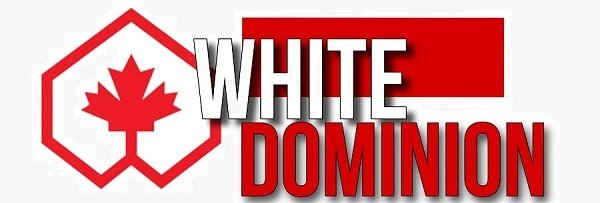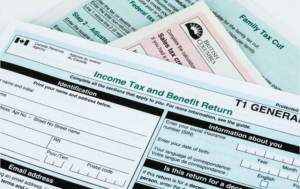When filing your Canadian tax return, you might come across various terms and lines that leave you wondering what they mean. One of the most important lines on the T1 General Tax Return form is Line 15000. So, what is Line 15000 on Tax Return? It represents your total income for the year. This amount is not just a number; it plays a critical role in determining how much you owe, what deductions you qualify for, and what benefits you might receive.
In this article, we’ll dive into 5 key insights on what is Line 15000 on Tax Return, explaining its importance, how it affects your overall tax situation, and what you need to know to avoid mistakes. Understanding Line 15000 can make a significant difference in your tax filings, ensuring you’re not missing out on potential refunds or overpaying your taxes.
Highlights
Toggle1. What is Line 15000 on Tax Return?
Line 15000 on Tax Return is where you report your total income from all sources. This includes everything you’ve earned throughout the year, whether it’s from your job, freelance work, investments, or other sources. Your total income is the starting point for your tax calculations and will determine your eligibility for various tax credits, benefits, and deductions.
Here’s a breakdown of what you need to include:
- Employment Income: This includes salaries, wages, bonuses, and any other compensation from your job. Most people receive a T4 slip from their employer, which details how much they’ve earned and how much tax was deducted.
- Self-Employment Income: If you’re a freelancer or run a business, the income you generate from these activities should be included. This will be reported on a T2125 form, and you’ll also have to account for any expenses related to your business.
- Investment Income: This includes interest, dividends, and capital gains. You might receive a T5 slip or T3 slip for income generated from your investments.
- Rental Income: If you own rental property, you’ll report your income from rent. You can also deduct eligible expenses related to the rental property.
- Other Income: This can include pensions, social security, unemployment benefits, or any other type of income that’s subject to tax. These can be reported on various slips like T4A or T4E.
Your total income from all these sources will be entered on Line 15000, and this figure will serve as the foundation for the rest of your tax return.
2. Why is Line 15000 Important on Tax Return?
The total income figure on Line 15000 is not just a formality. It affects every aspect of your tax return, from determining which deductions and credits you qualify for to calculating your overall tax liability. Here’s why Line 15000 is so critical:
Tax Credits and Deductions
Your total income will affect which tax credits and deductions you’re eligible for. For example, if your income is below a certain threshold, you might qualify for tax credits like the basic personal amount or credits for dependents. These credits can reduce the amount of tax you owe.
Deductions also play a big role in reducing your taxable income. If you qualify for deductions such as RRSP contributions or childcare expenses, these will reduce your income and ultimately lower the amount of tax you owe.
Tax Bracket Determination
In Canada, taxes are progressive, meaning the more you earn, the higher percentage of tax you pay. Your total income on Line 15000 determines which tax bracket you fall into. The higher your income, the more you will be taxed. This means your total income is crucial for understanding your overall tax burden.
Eligibility for Government Benefits
Several government programs, such as the Canada Child Benefit (CCB) and GST/HST credits, are based on your total income. If your income is lower, you may be eligible for additional benefits that can significantly reduce your tax liability.
For example, if you earn below a certain amount, you may receive the GST/HST credit, a quarterly payment that helps with the cost of goods and services. Similarly, lower-income families with children may qualify for the Canada Child Benefit, which provides monthly tax-free payments to eligible families.
Knowing how Line 15000 affects these programs helps ensure that you maximize your benefits and credits.
3. How to Calculate Line 15000 on Tax Return
Now that you know what Line 15000 on Tax Return represents, how do you calculate it? Here’s a step-by-step guide:
- Gather Your Income Documents
Before you start calculating, make sure you have all the necessary documents to report your income accurately. Some of the key documents you’ll need include:
- T4 slips for employment income
- T5 slips for investment income
- T3 slips for income from trusts
- T4A slips for pensions or other income
- T2125 form for self-employment income
- Add Up Your Total Income
Once you have your documents, you’ll need to add up all the income you’ve earned from various sources. This includes:
- Employment income
- Self-employment income
- Investment income
- Rental income
- Any other taxable income
- Adjust for Deductions
You may also have deductions that reduce your overall taxable income. These can include RRSP contributions, childcare expenses, or business expenses for self-employed individuals. After calculating your gross income, you’ll subtract any deductions to get your net income.
- Enter the Total on Line 15000
Once you’ve added up all your income and subtracted any deductions, enter the final figure on Line 15000 of your tax return. This number is crucial for determining your tax liability, so make sure it’s accurate.
4. Common Mistakes to Avoid on Line 15000
Filing your taxes can be complex, and mistakes can be costly. Here are some common mistakes people make when filling out Line 15000 and how to avoid them:
Forgetting to Include All Income
It’s easy to overlook small sources of income, like freelance gigs or interest from savings accounts. Make sure you gather all your documents and include every source of income on Line 15000. Even small amounts of income can add up, and failing to report them can lead to penalties or a reassessment.
Incorrect Deductions
Deductions are meant to reduce your taxable income, but they must be reported correctly. For instance, RRSP contributions can lower your taxable income, but you need to ensure that the amount you enter matches what is stated on your RRSP receipts. Similarly, if you’re self-employed, make sure you only deduct eligible business expenses.
Miscalculating Rental Income
If you earn money from renting property, you must report your gross rental income on Line 15000. Many people make the mistake of subtracting expenses, such as repairs or mortgage interest, before reporting their income. Remember, expenses are deducted later in the tax return process, not before you report the income.
Not Reporting Foreign Income
If you earned income from outside of Canada, you still need to report it on Line 15000. Whether it’s salary from a foreign job or interest from an international bank account, you must include all foreign income. Canada has agreements with many countries to avoid double taxation, but you still need to report everything.
5. How Line 15000 Affects Your Tax Refund or Liability
Your total income, as reported on Line 15000, directly impacts whether you will receive a tax refund or owe money to the government. Here’s how:
- Higher total income: If your income is high, you may owe more in taxes, as you could be in a higher tax bracket. Additionally, higher income means fewer opportunities for certain tax credits and benefits.
- Lower total income: On the other hand, if your income is lower, you might qualify for additional tax credits and benefits that can reduce your overall tax burden. You may even receive a tax refund if you’ve overpaid during the year.
Your Line 15000 total income is a critical figure in determining your tax liability. A higher income generally means you will owe more taxes, but it can also mean you’re eligible for fewer benefits. A lower income, on the other hand, could qualify you for various tax credits and rebates, potentially resulting in a refund.
Conclusion: Understanding What is Line 15000 on Tax Return
So, what is Line 15000 on Tax Return? It’s the line that represents your total income from all sources, and it serves as the foundation for the rest of your tax return. Understanding Line 15000 is crucial because it impacts your tax credits, deductions, eligibility for benefits, and your overall tax liability.
Accurately reporting your income on Line 15000 ensures that you’re not overpaying or missing out on credits and benefits that could reduce your tax bill. Keep track of all your income sources, report them correctly, and consult with a tax professional if needed to ensure that your tax return is filed correctly.
Understanding what is Line 15000 on Tax Return is an essential step in your journey toward tax filing success.
For more information on taxes and filing, check out Passages Malibu Logo, which provides interesting insights on financial wellness.
FAQ
What is Line 15000 on Tax Return?
What is Line 15000 on Tax Return? It represents your total income from all sources for the year, including employment, self-employment, investments, and other income. Understanding what is Line 15000 on tax return is crucial for ensuring your tax return is accurate and complete.
How does Line 15000 affect my tax refund?
Your total income, reported on Line 15000, impacts your tax bracket and eligibility for tax credits, which in turn determines whether you’ll owe money or receive a refund. Properly calculating what is Line 15000 on tax return helps you avoid errors and ensure you don’t miss out on potential refunds.
What should I include on Line 15000?
Include all sources of income, such as employment income, self-employment earnings, rental income, investment income, and any other taxable income. What is Line 15000 on tax return essentially captures all your income streams, making it the starting point for your tax calculations.
Do I need to report foreign income on Line 15000?
Yes, foreign income must be reported on Line 15000, even if you reside in Canada. It’s important to understand what is Line 15000 on tax return, especially if you have income from outside of Canada.
You May Also Like:
CryptoProNetwork.com: Your Ultimate Guide to the Crypto Platform




